Healthcare (Various Options)
Health Foundations
Interested in Healthcare, but not sure about your career options? Well the options are endless, and the Wilson Talent Center can help prepare you for whatever area you choose.
As a first year student, you will take the Health Foundations course. In this one-year core program, you will learn the basics of healthcare such as medical terminology, vital signs and CPR/First Aid, just to name a few. Students will cover 12 content segments including workplace safety, legal and ethical practices and health maintenance. Students who qualify will also have the opportunity to participate in limited work based learning experiences which could include job shadows, guest speakers or facility tours.
Students who pass the Health Foundations course with a 70% or higher for each semester/trimester and earn their CPR/First Aid and OSHA 10-hour General Industry Safety and Health certifications as a junior, are then eligible for an advanced healthcare course (Medical Assisting or Patient Care Technician) during their senior year. Students who are unsure of their second-year interest will have the opportunity to learn about the second-year programs before having to make that determination.
Healthcare Foundations Program Syllabus
Our mission is to provide students with the essential knowledge, skills, and work habits to excel in their careers and future learning.
Course Title
Health Foundations
National Career Cluster: Health Sciences Pathway
Michigan Career Pathway: Health Sciences
Instructors
Jamie George, ATC
517.244.1355
Ronda Manninen, MSEd
517.244.1481
Credentials
Jamie George, Certified Athletic Trainer, National Athletic Trainers Association, Certified BLS & First Aid Instructor, American Heart Association; State of Michigan Professional Teaching Certificate, State of Michigan Occupational Education Certificate; State of Michigan School Administrator Certificate
Ronda Manninen, Bachelor of Science in Medical Technology, Michigan Technological University; Master's of Science Education, Northern Michigan University; CTE Therapeutic Services and Diagnostic Services endorsements; State of Michigan Professional Teaching Certificate, American Heart Association CLS Instructor
Types of Credit
- One full fourth year math credit (seniors only)
- One full third year science credit
- Second year World Language credit
- Michigan Merit Curriculum: Visual Performing and Applied Arts (VPAA), one full credit
- On-line credit
Credit recommended by WTC; awarded by sending school
Articulation Agreements
Students must complete all assignments and receive a grade of 80% or higher overall in order to receive articulation.
- Lansing Community College
- Jackson College
- Baker College
- Davenport University
- Washtenaw Community College
- Ferris State University
Program Description
The goal of the Health Foundations is to provide students an introduction to a variety of healthcare occupations and the understanding of the coursework/career path necessary to enter one of those professions. In class, students will learn medical terminology, basic anatomy and physiology, legal and ethical aspects of medical practice, infection control, CPR,
vital signs, communication and teamwork and may have the opportunity to job shadow with
healthcare professionals.
Special Requirements/Program Prerequisites
- 9th Grade (minimum) reading and math levels
- Ability to read, understand, and apply technical information
- Basic keyboarding and word processing skills (Windows environment)
- Good attendance and attitude
- Good communication skills
- Ability to work well in teams and individually
- Attention to detail
- Ability to work in a noisy environment
- Problem solving skills
- Ability to lift and move
- Visit www.salary.com for local salary ranges for potential careers
- Up-to-date immunizations, including Hepatitis B and TB test, Influenza and COVID-19 vaccinations**Required
- Adhere to dress (scrubs) and grooming requirements
Course Topics
- Academic Foundation/Anatomy and Physiology
- Communications/Medical Terminology
- Systems
- Employability Skills
- Legal Responsibilities
- Ethics
- Workplace Safety Practices
- Teamwork in Healthcare
- Health Maintenance Practices
- Technical Skills
- Information Technology in Healthcare
Students in this program will have the opportunity to participate in HOSA Future Health
Professionals. HOSA is a global student-led organization recognized by the U.S. Department of
Education and the Department of Health and Human Services and several federal and state
agencies. HOSA’s mission is to empower HOSA-Future Health Professionals to become leaders in the global health community, through education, collaboration, and experience. HOSA provides a unique program of leadership development, motivation, and recognition exclusively for secondary, postsecondary, middle school, adult, and collegiate students enrolled in health science education and biomedical science programs or have interests in pursuing careers in health professions. HOSA is 100% health care!
Exit Outcomes:
- Employability skills to seek, obtain, and keep employment in the health care industry.
- Individualized career exploration, through classroom and Work-Based Learning opportunities.
- Identification of and support for achieving an individualized Career Path Plan, to include post high school college or vocational training.
- College articulation
- National certification in CPR/First Aid at the healthcare level.
- CareerSafe OSHA Training
- Teamwork and leadership skills
Work-Based Learning Opportunities:
- Industry Advisory Board
- Industry field trips/tours
- Occupational speakers
| Grade | Percent |
|---|---|
| A | 93-100% |
| A- | 90-92% |
| B+ | 87-89% |
| B | 83-86% |
| B- | 80-82% |
| C+ | 77-79% |
| C | 73-76% |
| C- | 70-72% |
| D+ | 67-69% |
| D | 63-66% |
| D- | 60-62% |
| E | 59% or below |
| W | Withdrawal |
There are 6 marking periods, each 6 weeks long. Grades for each marking period are weighed as follows:
Learning Activities 30% (Classwork)
Unit Assessment 35% (Assessments)
Work Habits 35%
Advanced Healthcare options include:
Capital Area Patient Care Technician (PCT)
The Capital Area Patient Care Technician program provides the opportunity for students to explore a variety of careers within an in-patient hospital setting by rotating through partner sites doing job shadows. Students will also be trained both in the classroom and through clinical experiences, to become a Patient Care Technician, Phlebotomy Technician and EKG Technician.
A Patient Care Technician is an important job in the medical profession. They will provide help to patients in hospitals, doctor’s offices and nursing homes. PCT's work directly with physicians, nurses and other members of the health team to help patients recover and prepare for discharge. Some of the duties of a PCT might include: taking vital signs, specimen collections & phlebotomy, self-care assistance, EKG testing and interpretation and patient teaching.
PCT’s are in demand and this can be a great entry-level opportunity as students navigate their future career plans in a healthcare setting. PCT’s average about $16-20 per hour here in Michigan. Phlebotomists can earn an average of $18-20 per hour.
Note: To be eligible for this course, students must complete Health Foundations as a junior with a 70% or better for each semester/trimester and pass both the CPR/First Aid and OSHA 10-Hour General Industry Safety and Health certifications.
Capital Area Patient Care Technician (CAPCT) Program Syllabus
Our mission is to provide students with the essential knowledge, skills, and work habits to excel in their careers and future learning.
Course Title
Capital Area Patient Care Technician (CAPCT)
National Career Cluster: Health Sciences
Michigan Career Pathway: Health Sciences
Instructor
Adria Lee, MSN/Ed., RN
517.364.3068
Credentials
Registered Nurse, Nursing Education Specialist
Types of credit
- One full fourth year math credit
- One full fourth year science credit
- Michigan Merit Curriculum: Visual Performing and Applied Arts (VPAA), one full credit
- On-line credit
- Elective Credit
- ½ English Language Arts credit
Credit recommended by WTC; awarded by sending school
Program Description
This program will build on the knowledge from Health Foundations and provide students with knowledge and skills to be applied as a Patient Care Technician, Phlebotomy Technician and EKG Technician. This is provided through lecture, lab and work-based learning components.
Course Topics
Throughout the school year, assignments and curriculum covered includes:
- Ferris State University Freshman Composition (college credit can be obtained based on classroom performance)
- Lecture Topics surrounding Phlebotomy, EKG and Patient Care
- Advanced body systems and advanced medical terminology
- Clinical patient care skills
- Career and employment readiness/professionalism
- Mock Interviews
- Job Shadow/clinicals/externships
- Tours, college visits and special guest/activities
- Leadership & Volunteering Opportunities
Assignments will be graded and returned to students if corrections need to be made. This can be done only during the current grading term.
Classroom Information
Class schedule:
- AM starts at 8:00 and ends at 10:40am
- PM starts at 11:35 and ends at 2:15pm
- Breaks will be given at approximately: AM 8:30, PM 1:00;
FYI our schedule requires that we be flexible with this. To limit disruptions during class, if possible please take restroom breaks before and/or after class and/or during break time.
- There will be NO cell phone use during class time. Phones will be placed in classroom cell phone pockets during class. This is to minimize distractions from classroom content. Failure to comply can result in grade reflection on work habits, suspension of work-based learning and removal from the program should the use violate our partner's privacy policy.
- Badges should be worn at all times with uniform.
- To be excused early from class, students will need to have documentation from the home school or a parent and it will count as a tardy.
- Drinks and food are allowed in class (not lab area) as long as it does not cause a distraction. Drinks must be covered or have lid, food should not have offensive odor, as we are in a contained area. Spills should be cleaned up immediately, and tables wiped after eating.
Grading
- There are 6 marking periods, each approximately 6 weeks long, not counting holiday breaks. Grade percentages for each marking period are based up four Essential Competency Areas (ECA’s): 25% Employability and Professionalism, 25% Skill Attainment, 25% Career Exploration and Preparation, 25% Recognition of Abnormals
- Exams are given in a quiet setting where no talking or distractions are permitted. All students are allowed extra time to complete exams or private test-taking area upon request.
Attendance
Absences: If you find that you MUST miss class;
- Notify me as you would notify an employer for a call-in (call, message).
- Have a parent/guardian excuse your absence by calling the WTC @ 517-244-1306. Failing to do this will result in an unexcused absence. I DO NOT have authority in the system to excuse absences.
- If you no-call/no-show, you will receive a zero for work habits attendance and your work-based learning opportunities may be suspended.
Students are allotted 35 hours of sick time/absences per school year to maintain eligibility for national certification training hours. Each absence subtracts 2.5 hours from the allotted Bank35. Excellent attendance is required.
***you will lose participation points for the day
***depending on the activity missed, you may/may not be able to make up assignments. i.e. hands on activities or labs, guest speakers, field trips, etc.
***your work habits grade will each absence.
***Parents will be notified of Bank35 balance at each marking period or in 10 hour increments.
***Students who exhaust their entire Bank35 will be ineligible for the national Patient Care Technician exam.
Tardies (arriving late/leaving early-unless excused by your home school)
- Notify me as you would your employer/job in advance
- Tardies are tardies, and cannot be excused, so there is no need to have a parent/guardian call the WTC for a tardy.
- You will lose hours from Bank35 in 15 minute increments.
Please, enter/exit quietly with little interruption, just as if you were tardy to a business meeting/event.
***you will lose a portion of your participation points, depending on what you missed
***depending on how late/early you leave, you may/may not be able to make up assignments. i.e. you miss the entire instruction set for our activity.
***your work habits grade will reflect each tardy.
Requirements/Program Prerequisites
- Complete Health Foundations Program
- Good attendance and attitude
- Ability to work well in teams and individually
- Ability to learn on-line
- Up-to-date immunizations
- Adhere to dress (scrubs) and grooming requirements
- Have transportation to and from the clinical site for work-based learning
NOTE: In the event that there are an outstanding number of applicants for the program the following will occur in creating a waitlist:
Behavior/discipline, grades, and attendance will be taken into account with each student receiving points in each area. Those students with the highest points based on that criteria will be awarded seats in the program with the remaining being placed on a waitlist in the respective order from highest points to lowest.
Necessary Supplies
- Student Supply Kit $117.00
- Personal Laptop if preferred
Dress Code
CLASSROOM: Class scrubs, black athletic/non-skid shoes, name badge, clean/well-groomed appearance, appropriate for a professional healthcare setting.
JOB SHADOWS/MENTOR VISITS/TOURS/CLINICALS: Class scrubs, black athletic/non-skid shoes, name badge, minimal jewelry (i.e., small earrings, no bracelets, no facial piercings), long hair pulled back or off shoulders, clean and trimmed nails, clean/well-groomed appearance.
*Students wishing to change before/after class will need to do so in the restrooms and on their own personal time.
Medical Assistant
The Medical Assistant Program allows students to focus on a career path while gaining valuable clinical and laboratory experience with real patients. This track would be ideal for a student interested in working in a doctors office, laboratory or pharmacy.
Emphasis is placed on three major areas of focus: academics and clinical skills building, certification opportunities and work placement. Some of the skills you will be exposed to include but are not limited to; EKG, Phlebotomy, Injections and Wound Care. Students also have the option to select up to three certification tracks: Clinical Medical Assistant, Phlebotomist or a Pharmacy Technician.
Because clinical experience in a variety of healthcare facilities is a key component of your education, you will the take your new skills and knowledge and apply them at professional healthcare sites.
Note: To be eligible for this course, students must complete Health Foundations as a junior with a 70% or better for each semester/trimester and pass both the CPR/First Aid and OSHA 10-Hour General Industry Safety and Health certifications.
Medical Assistant Program Syllabus
Our mission is to provide students with the essential knowledge, skills, and work habits to excel in their careers and future learning.
Course Title
Medical Assistant
National Career Cluster: Health Sciences
Michigan Career Pathway: Health Sciences
Instructor
Sarah Morgan, RN, BSN
517.244.1347
Credentials
Registered Nurse
Certified American Heart Association BLS Instructor
First Aide Instructor
Instructional Assistant
Chelsea Lawson LPN
517.244.1341
Credentials
Licensed Practical Nurse
Certified American Heart Association BLS
Types of Credit
- One full fourth year math credit
- One full third year science credit
- Michigan Merit Curriculum: Visual Performing and Applied Arts (VPAA), one full credit
- On-line credit
- Elective Credit
- 1/2 English Language Arts credit
Credit recommended by WTC; awarded by sending school
Articulation Agreements
Students must complete all assignments and receive a grade of 80% or higher overall in order to receive articulation.
- Davenport University
Program Description
This program will build on the knowledge from Health Foundations and provide students with knowledge and skills to be applied in the outpatient work setting as a medical assistant, phlebotomist, or pharmacy technician through a work–based learning component. Certification opportunities include Clinical Medical Assistant, Phlebotomy Technician and Pharmacy Technician.
Course Topics/Hands on Learning Labs:
- Patient Care
- Vital Signs, Suture Removal, Wound Care, Assisting in minor surgeries
- Laboratory Testing
- Phlebotomy
- Pharmacology
- HIPAA/Universal precautions and safety
- Infection control
- Medical terminology
- Use of medical equipment; EKG, PFT, Holter monitor
- Telephone/Reception Skills
- Appointment Scheduling
- Maintenance of Health Records
Exit Outcomes
- Employability skills to seek, obtain, and keep employment in the health care industry.
- Identification of and support for achieving an individualized Career Path Plan, to include post high school college or vocational training.
- College articulation at Lansing Community College
- Teamwork and leadership skills and externships
- Skills necessary to take the National Healthcareer Association Certifications
- Certified Clinical Medical Assistant (CCMA)
- Certified Phlebtomy Technician (CPT)
- ExCPT Pharmacy Technician (CPhT)
Special Requirements/Program Prerequisites
- Complete Health Foundations Program
- Good attendance and attitude
- Good communication skills
- Ability to work well in teams and individually
- Ability to learn on-line
- Up-to-date immunizations, including Hepatitis B and TB test
- Adhere to dress (scrubs) and grooming requirements
- Have transportation to and from the clinical site for work-based learning
Grading Policy
There are 6 marking periods, each 6-7 weeks long.
Medical Assisting will be using Evidence-Based Reporting (EBR) this school year. EBR is used to ensure that a student’s grade reflects student learning based on our course’s learning expectations. EBR is also known as standards-based grading which emphasizes mastery of skills rather than completion of tasks.
You may notice some differences in PowerSchool. There may be times when it seems like fewer grades are entered into the system or you may see projected grades. This is because EBR focuses on mastery of skills and collecting a variety of evidence rather than completion of tasks. It is intended to provide clear expectations regarding what they need to know/provide evidence for and gives them the ability to improve their outcome if they choose to do so. EBR allows students to have multiple opportunities to show what they have learned and earn an appropriate grade. Although the process of earning grades is different, all students will continue to earn letter grades that are reported back to their home district.
Medical Assisting Goal Calendar
There are four Essential Competency Areas students will be graded on: Employability Skills; Safety/Infection Control, Communication, and Clinical Application throughout the school year.
| Essential Competency Area (ECA) | October-MP1 | November-MP2 | January-MP3 | February-MP4 | April-MP5 | June-MP6 |
|---|---|---|---|---|---|---|
| Employability | AP | PR | PR | PR | PR | PR |
| Safety & Infection Control | AP | PR | PR | PR | PR | PR |
| Communication | DV | AP | PR | PR | PR | PR |
| Clinical Application | DV | AP | AP | AP | PR | PR |
Not Enough Evidence (NE)
Developing (DV)
Approaching Proficiency (AP)
Proficiency (PR)
Exceptional (EX)
Grade Calculator
A: 95% meeting and/or exceeding the goal for all ECAs
B: 85% not meeting goal calendar in 1 ECA
C: 75% not meeting goal calendar in 2 ECAs
D: 65% not meeting goal calendar in 3 ECAs
F: 0% NE in any ECA
- Grade will also be influenced by the trend of scores. For example, if a student trends downward, his/her grade will likely be impacted negatively. If a student trends upward, his/her grade will likely be impacted positively.
Photos from our various Healthcare programs . . .
-
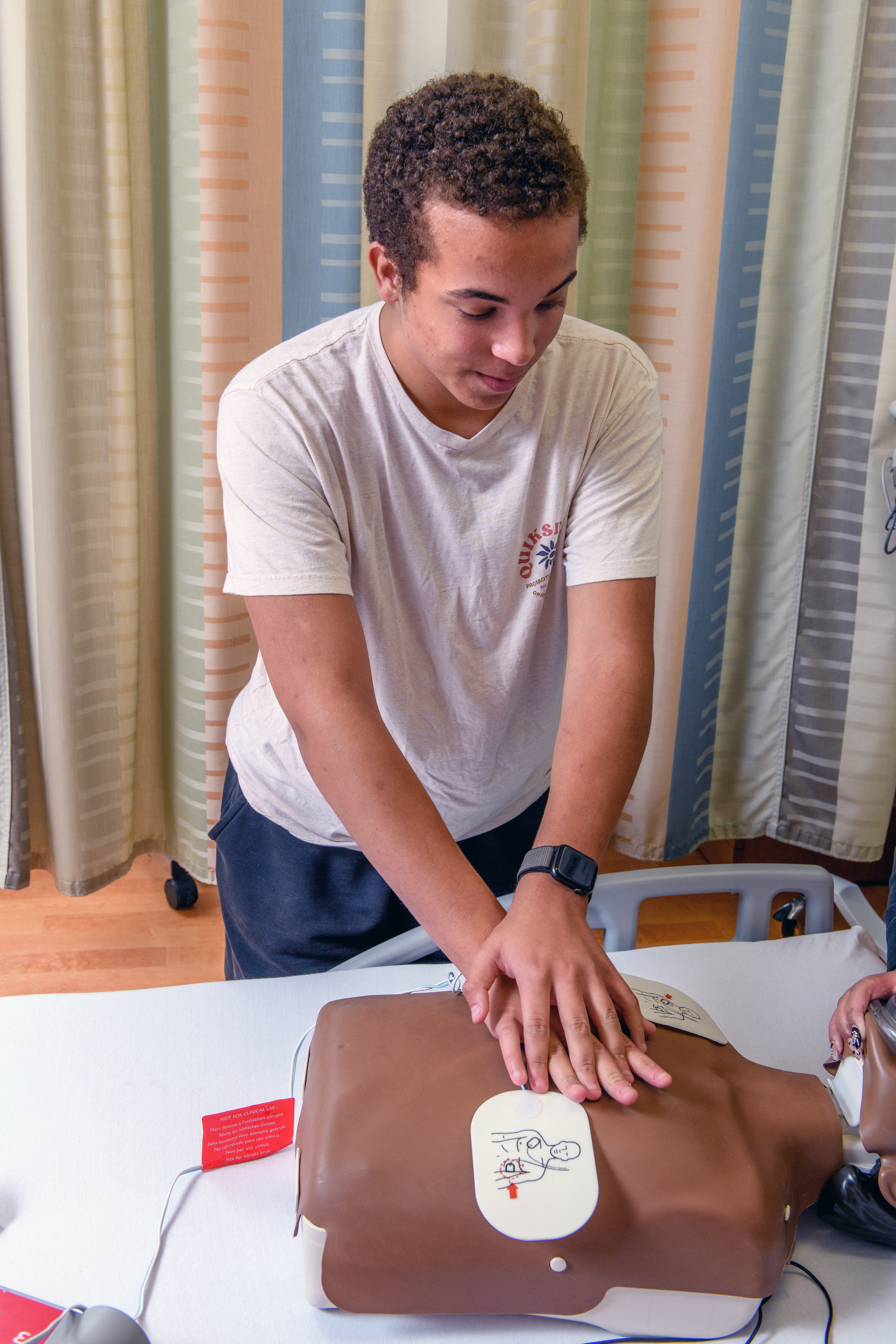 Click to see a larger version
Skip to end of gallery
Skip to start of gallery
Click to see a larger version
Skip to end of gallery
Skip to start of gallery
-
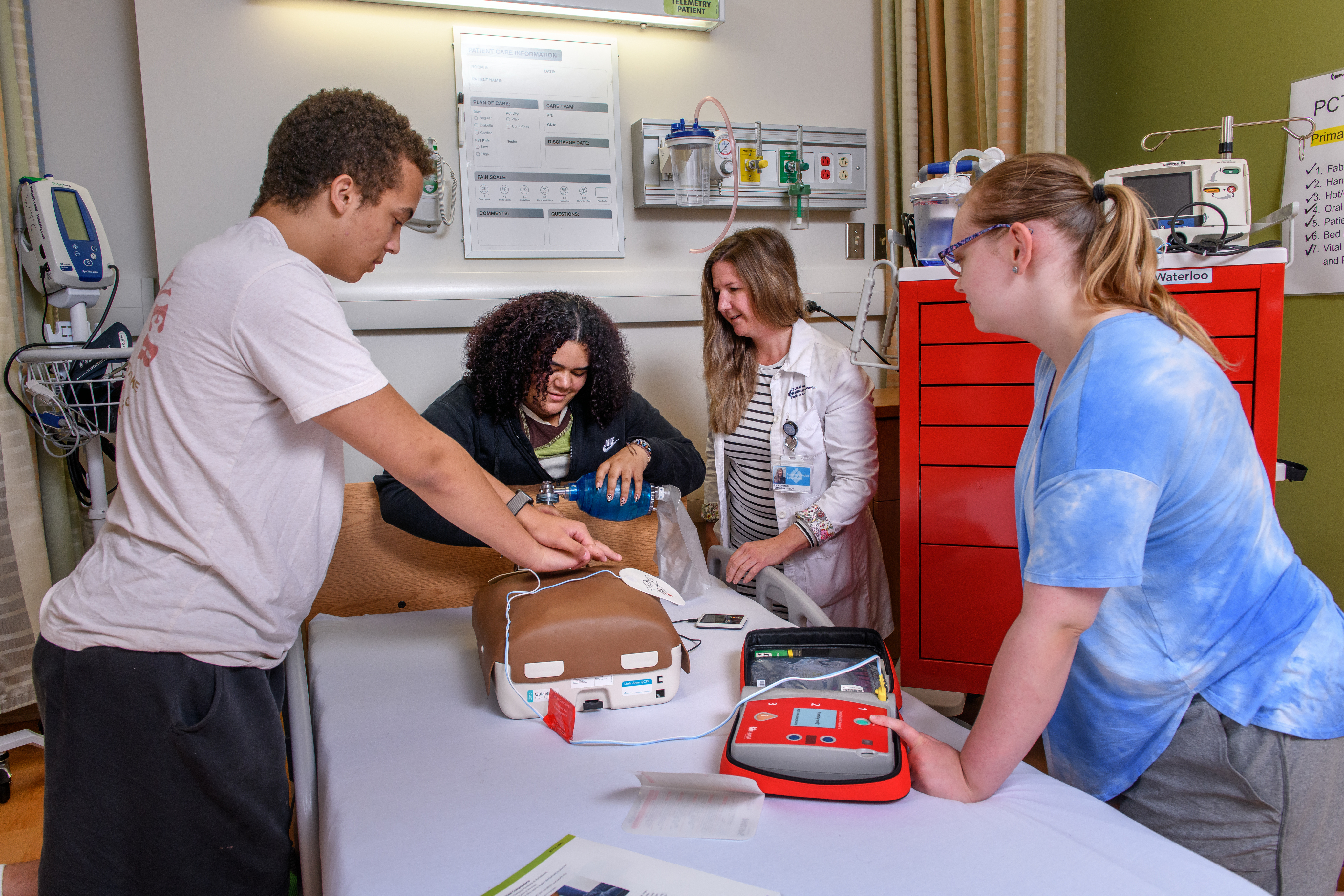 Click to see a larger version
Skip to end of gallery
Skip to start of gallery
Click to see a larger version
Skip to end of gallery
Skip to start of gallery
-
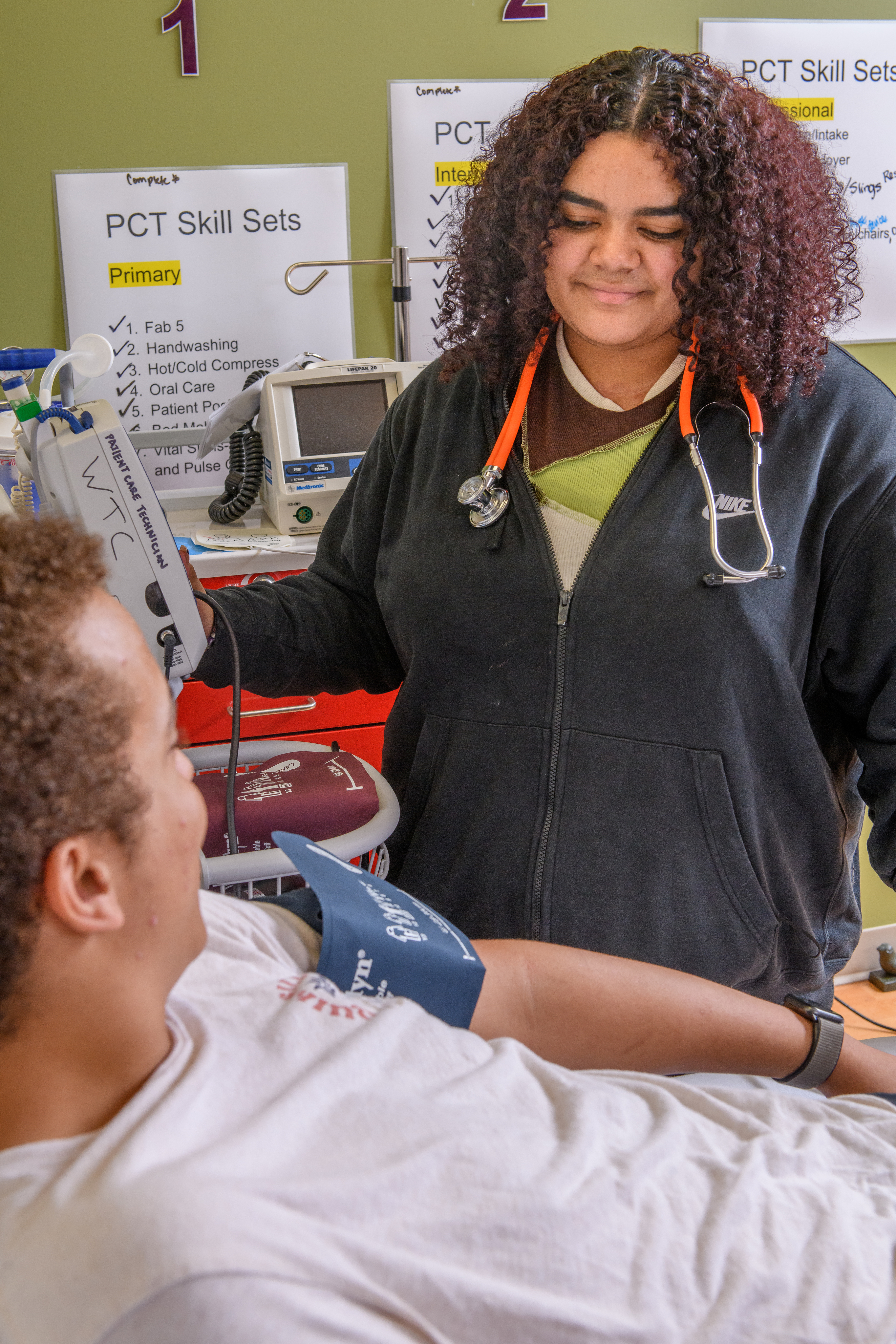 Click to see a larger version
Skip to end of gallery
Skip to start of gallery
Click to see a larger version
Skip to end of gallery
Skip to start of gallery
-
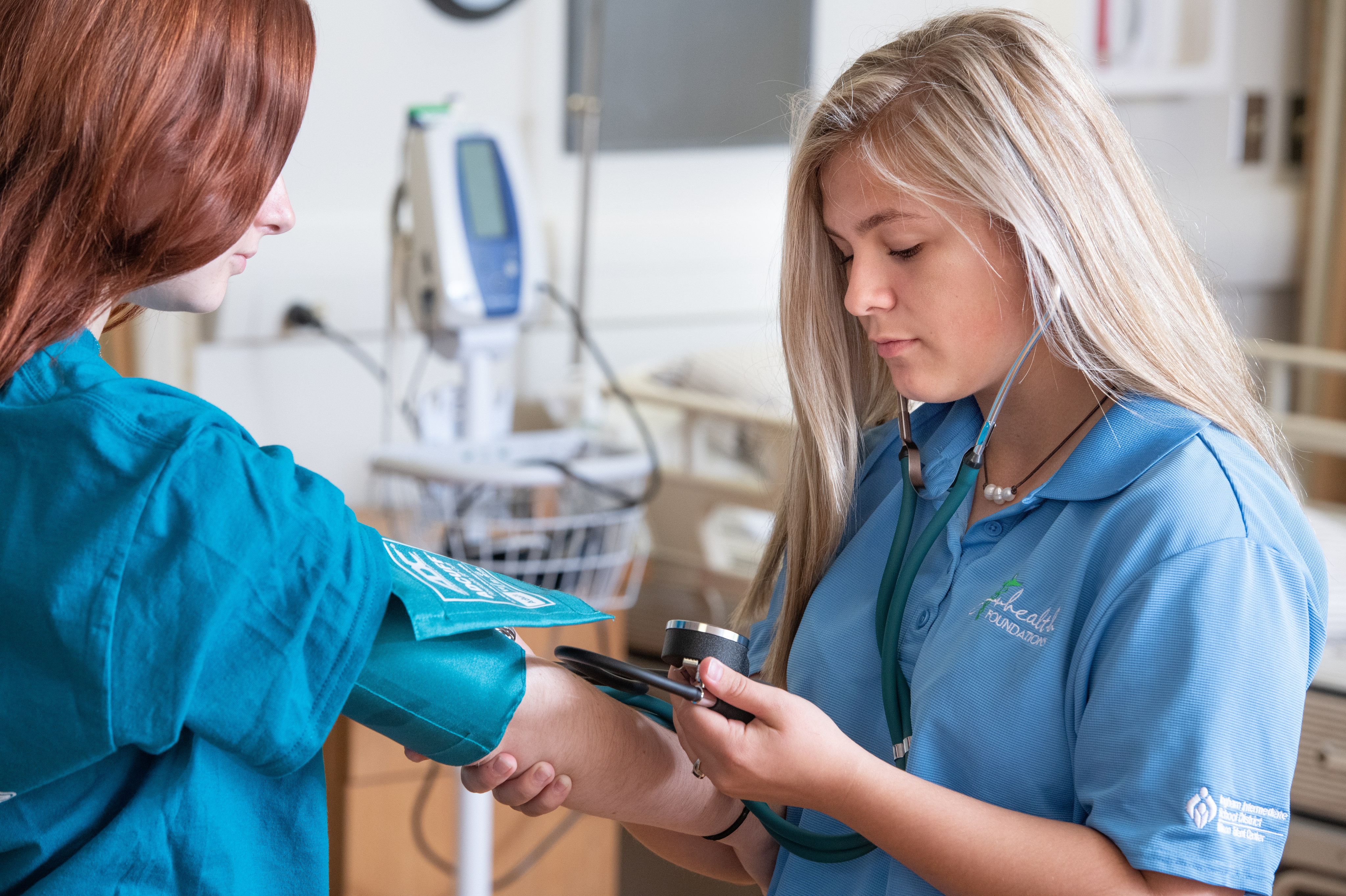 Click to see a larger version
Skip to end of gallery
Skip to start of gallery
Click to see a larger version
Skip to end of gallery
Skip to start of gallery
-
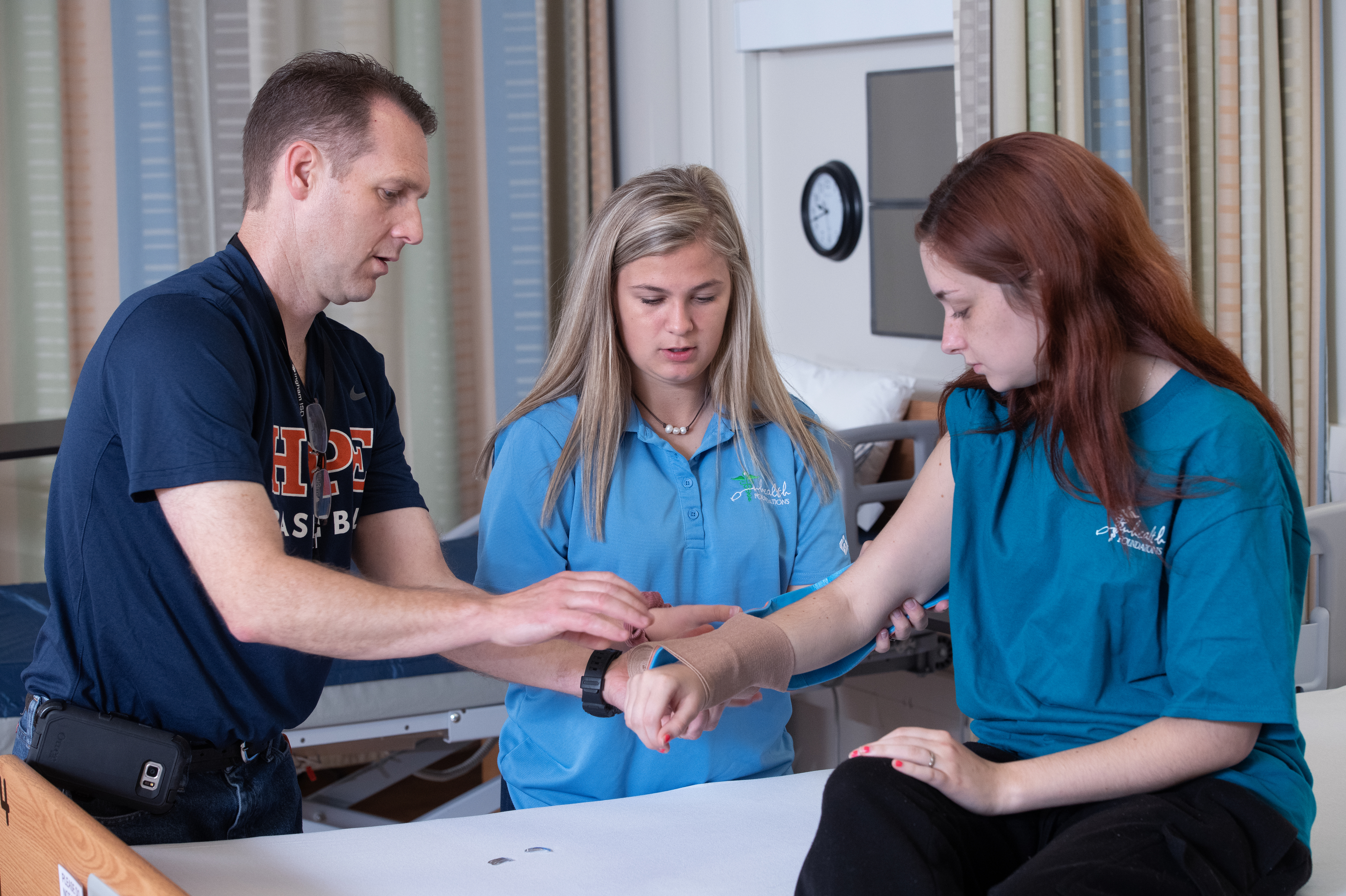 Click to see a larger version
Skip to end of gallery
Skip to start of gallery
Click to see a larger version
Skip to end of gallery
Skip to start of gallery
-
 Click to see a larger version
Skip to end of gallery
Skip to start of gallery
Click to see a larger version
Skip to end of gallery
Skip to start of gallery
-
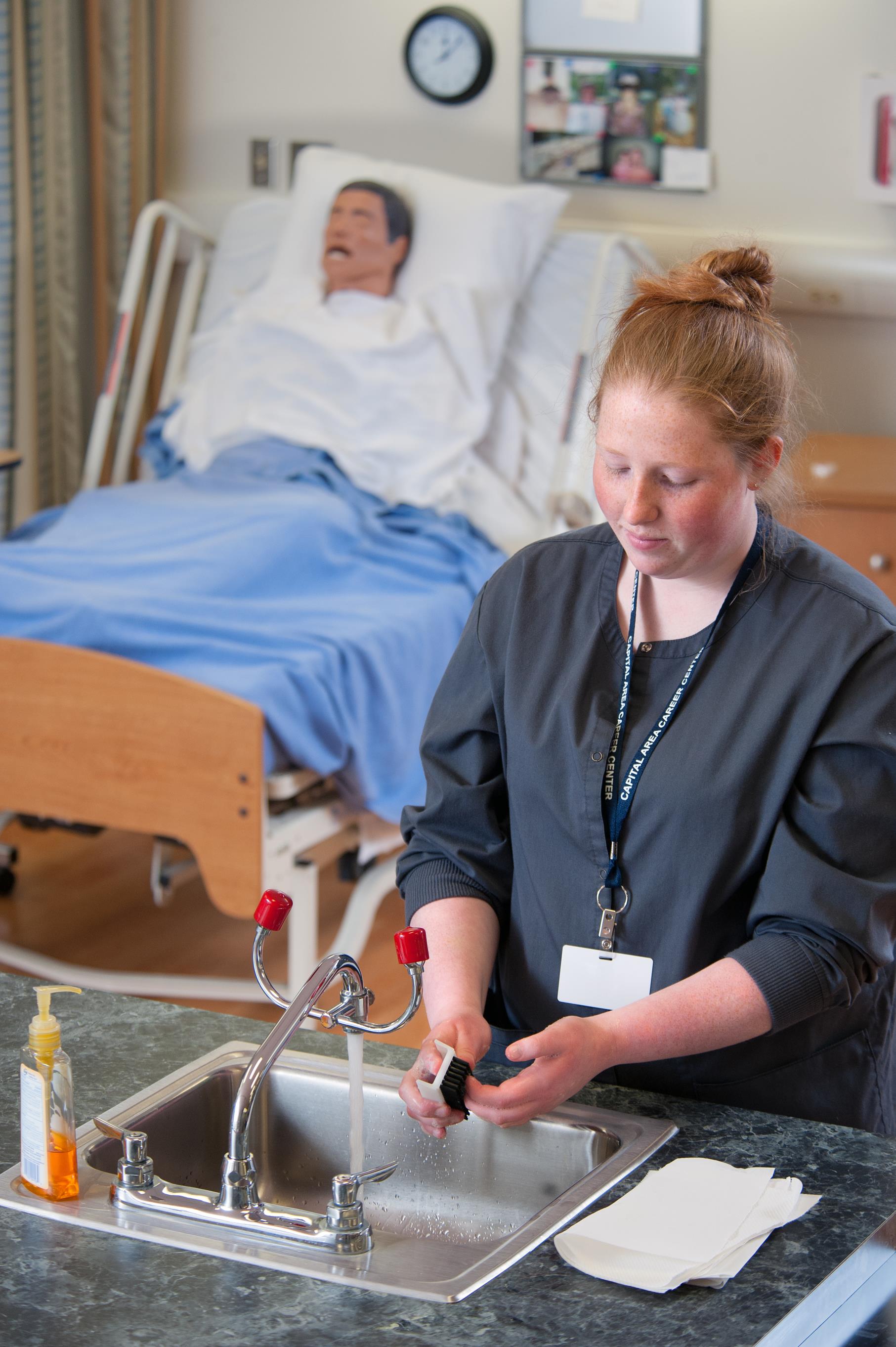 Click to see a larger version
Skip to end of gallery
Skip to start of gallery
Click to see a larger version
Skip to end of gallery
Skip to start of gallery
-
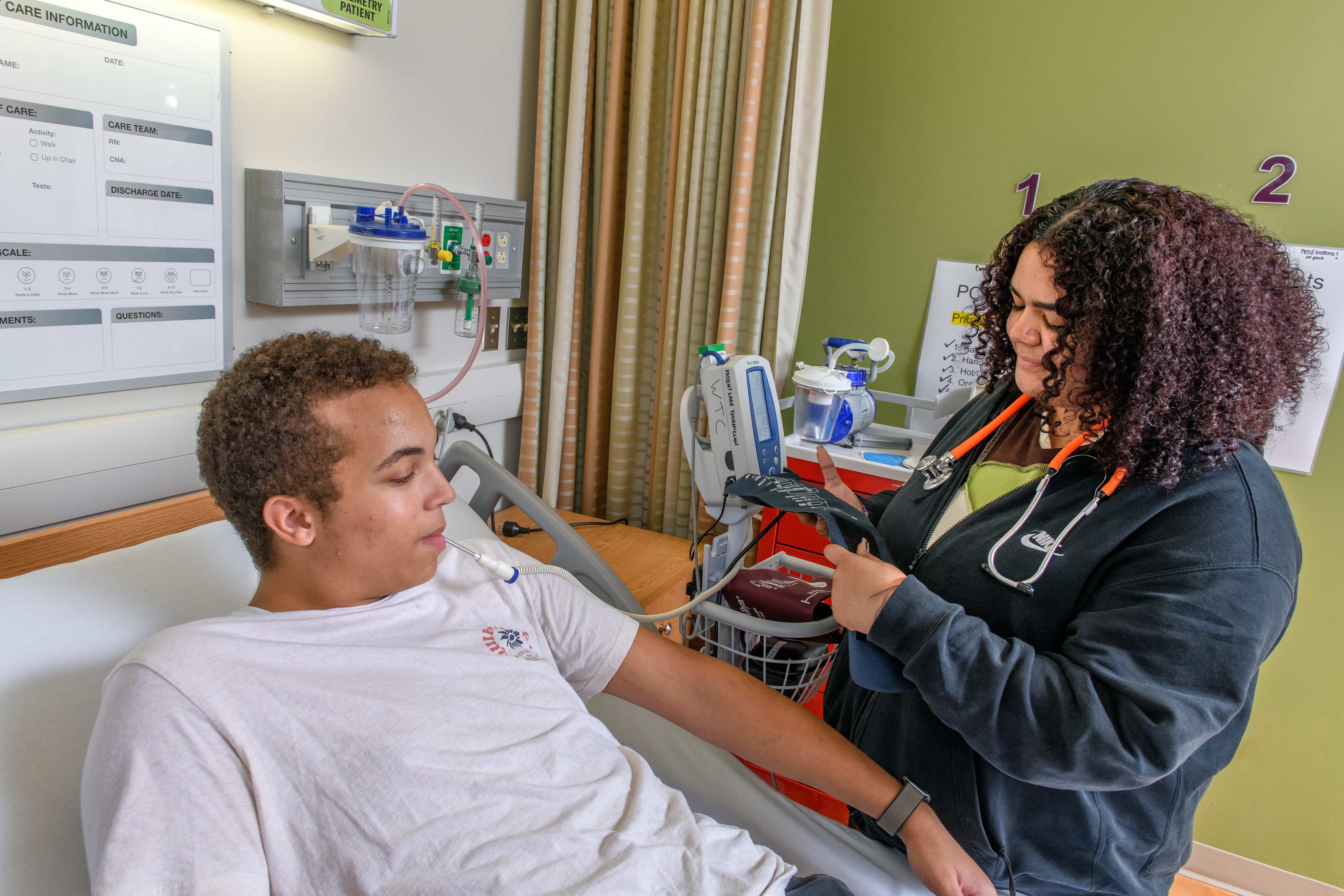 Click to see a larger version
Skip to end of gallery
Skip to start of gallery
Click to see a larger version
Skip to end of gallery
Skip to start of gallery
-
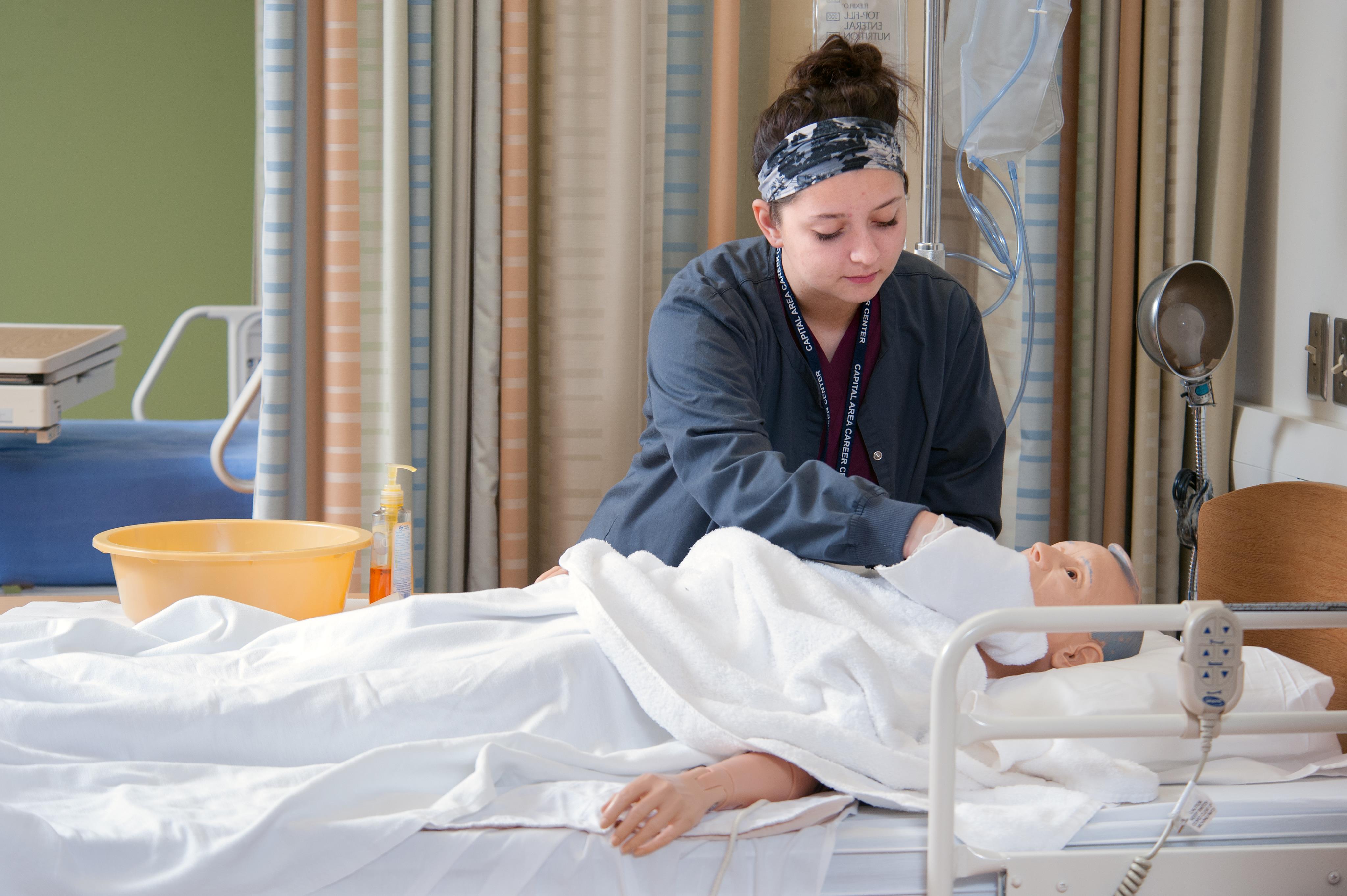 Click to see a larger version
Skip to end of gallery
Skip to start of gallery
Click to see a larger version
Skip to end of gallery
Skip to start of gallery
-
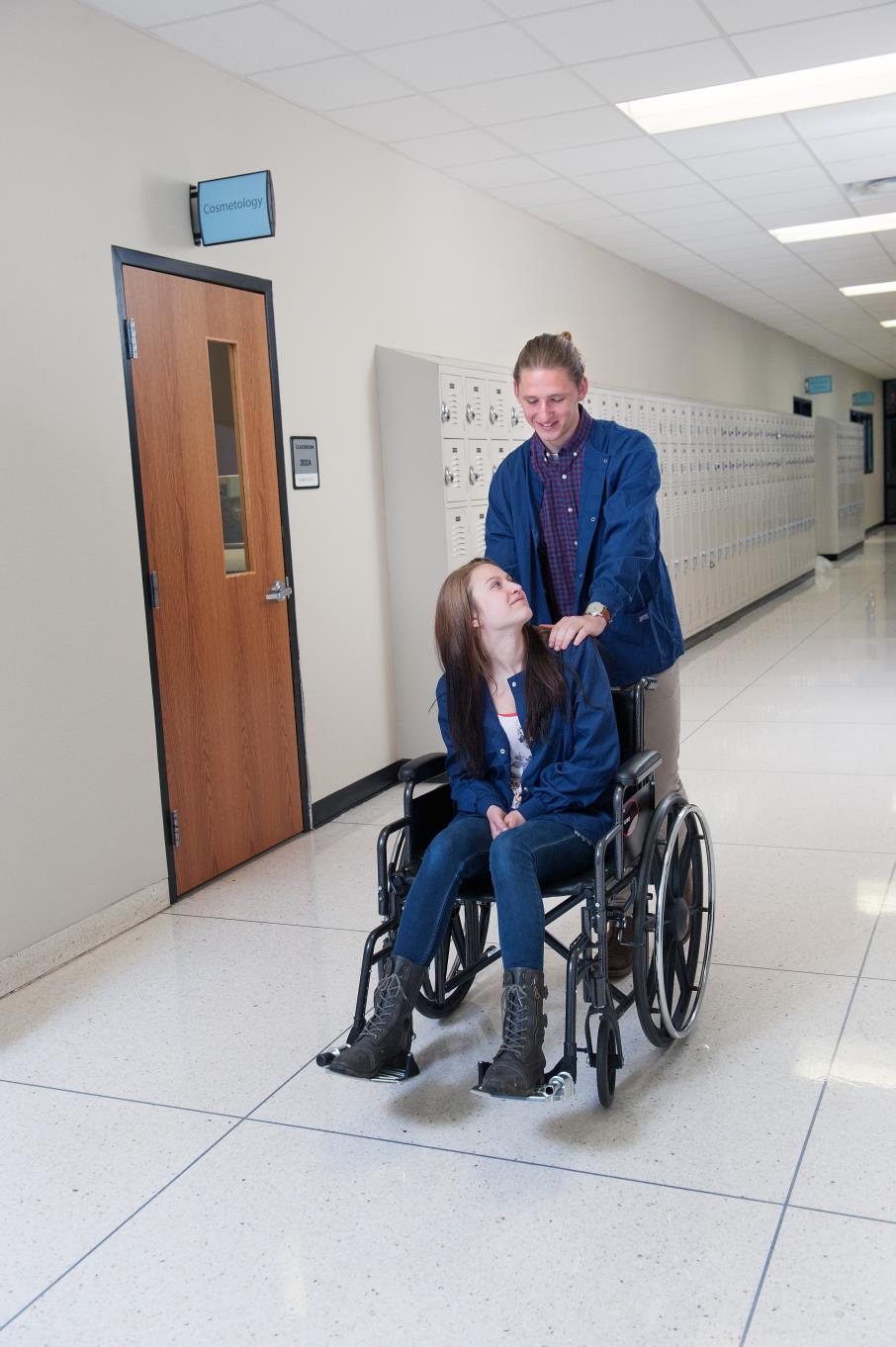 Click to see a larger version
Skip to end of gallery
Skip to start of gallery
Click to see a larger version
Skip to end of gallery
Skip to start of gallery
-
 Click to see a larger version
Skip to end of gallery
Skip to start of gallery
Click to see a larger version
Skip to end of gallery
Skip to start of gallery
-
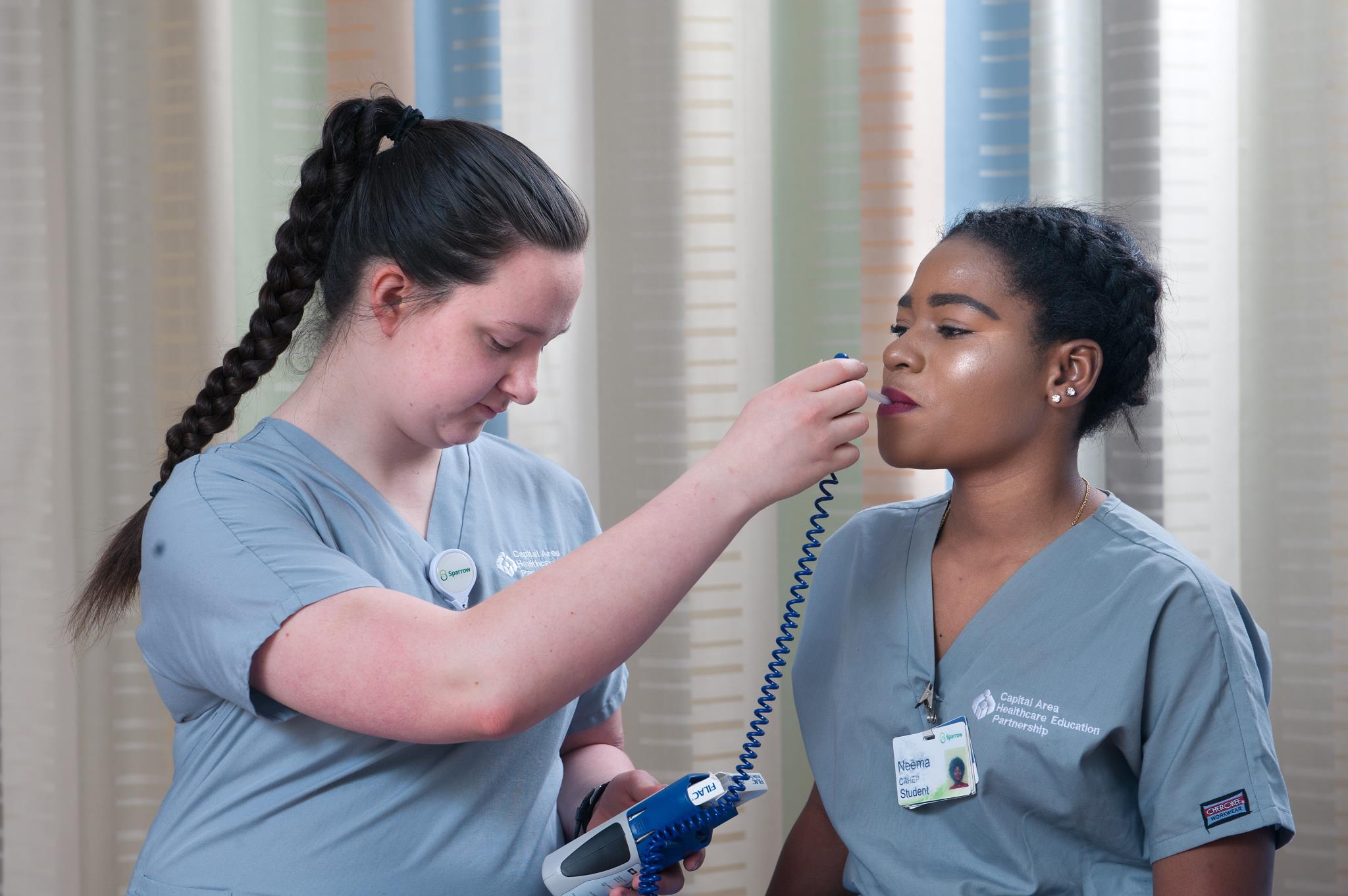 Click to see a larger version
Skip to end of gallery
Skip to start of gallery
Click to see a larger version
Skip to end of gallery
Skip to start of gallery
Health Foundations Student Testimonials
The following music was used for this media project:
Music: Soul Provider by chilledmusic
Free download: https://filmmusic.io/song/7476-soul-provider
License (CC BY 4.0): https://filmmusic.io/standard-license
About Healthcare Programs
Health Foundations (1 year program for juniors and/or seniors)
Advanced Healthcare options are all 1 year programs available once a student has successfully completed Health Foundations as a junior
Skills Students Leave With:
CPR/First Aid
Patient Vital Signs
Medical Ethics/HIPPA
Medical Terminology
Healthcare Concepts
Teamwork
